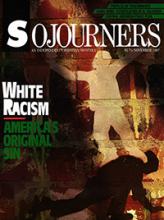EACH OF US COMES TO OUR perspective on racism based on our own life experience. My life experience is rooted in growing up white and relatively privileged in totally segregated Alabama in the 1930s.
Read the Full Article

Already a subscriber? Login

EACH OF US COMES TO OUR perspective on racism based on our own life experience. My life experience is rooted in growing up white and relatively privileged in totally segregated Alabama in the 1930s.
